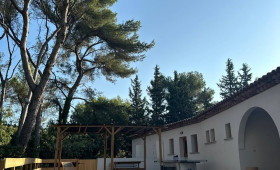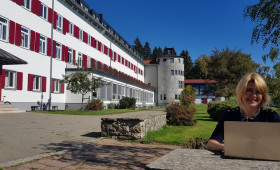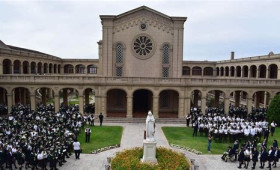How to prepare your childr for a successful start at school abroad
07.12.212473
After the admission of foreign students to the senior classes of foreign schools, no matter how well the children show themselves during the entrance tests and interviews, you certainly understand how difficult it is to integrate into the educational process in another country and a completely different education system. Be prepared for the fact that children will have to put a lot more effort into their studies, study more hours, and at the same time, in the first months of studying in a new country under the new education system, academic performance is likely to drop.
Most likely, your children already know very well all aspects of the foreign language taught at school. But, it is one thing to study a foreign language, quite another, when a child has to study all other subjects with their own specific vocabulary. At the same time, the program will certainly include subjects that local students have already begun to study, and your children will encounter these subjects for the first time.
Of course, the earlier a child joins a foreign school, the freer he will master the language and the higher the chances of getting high scores on school exams, which affect the chances of choosing a good higher education, which is why, in general, you send your children to study to good foreign schools. Depending on the country and the education system, exams, the results of which are considered when entering the university, may not only be in the final grade. In general, the most decisive exams for universities are always the final exams of the last year of study, for which the last 2-3 years of high school are preparing and the average score of the certificate with the results of the lower secondary education exams.
This is exactly when foreign students join the new education system immediately into the preparatory class for final exams (in the 11th grade of the IB or American Diploma program, in the 12th grade A-level or Living Certificate, in the 10th grade GCSE or Swiss Maturite , or French Bac, or Abitur) - they no longer have time to start learning with some disruption in academic performance, as this carries a high level of stress and affects the final result.
Although, if it so happened that you decided to send your children to study at a foreign school as late as possible and they start studying on the exam preparation program, help them to enter the new training system as easily as possible.
The first thing I would advise you to do is to start the admission procedure as early as possible, preferably in September of the previous year or even 1.5 years before starting your studies in a new country, so that you have enough time to prepare your children for a new school. It is highly advisable to go to see the school, either for an open day, or for an interview and familiarization with the infrastructure. If possible, if the school offers it, attend lessons.
Secondly, after admission, request the curriculum for the current year in the new school, especially in the main subjects, in order to go through with the tutor those topics in mathematics, literature and sciences, in which there is necessarily a difference with the curriculum in the current school. Often, the school can provide you with a curriculum for your chosen subjects for the next year.
Well, the best options for preparing children for a successful start will be preparation for the chosen program in the foreign language in which further education is supposed.
Let's consider what are the possibilities for this. In today's educational world, preparing foreign children for a successful study abroad has become a whole business that quickly adapts to current requirements and especially rapidly gained momentum in online education during the coronavirus epidemic.
1. Individual online lessons in selected subjects with foreign tutors. They can be both in academic vocabulary, essay writing, preparation of presentations, in-depth study of grammar and any subject in the language of further education.
2. Group online courses (in language or specific subjects). Depending on the subject and the entry level, the duration may vary and the start dates of the course may not correspond to your application.
3. Simultaneous education in one's own school and on-line education in the corresponding class of a foreign school. Such programs can be as short as one trimester in a live group with a teacher and begin 3-4 times a year, or self-study on educational platform of 1-2 subjects in recording at a selected time throughout the academic year with flexible start and end dates for the course.
4. A term or even an academic year of a preparatory program (may start in September, January, April or June) or a summer academic preparatory program for high school programs. The program will help to improve academic skills in a foreign language and getting acquainted with the main subjects that will be studied next year.
All of the above programs will require additional financial investments from you, but if you have decided on such a significant investment as the completion of high school abroad by your child, then the investment in a successful start will be very reasonable.


















